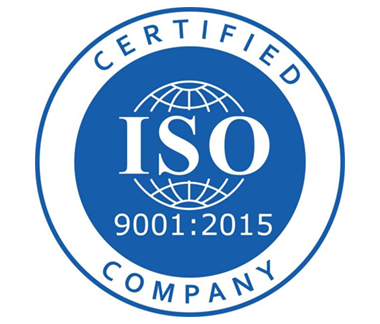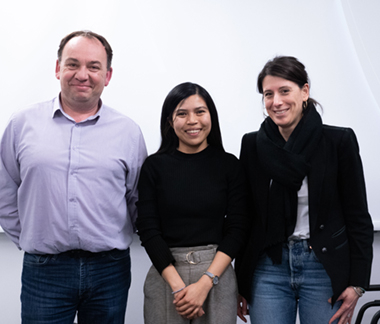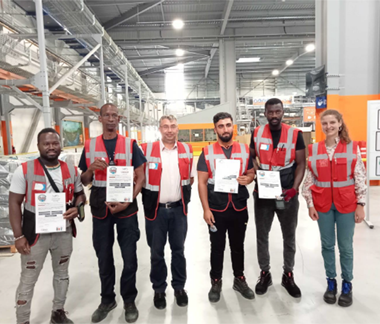Operational excellence : more than a program, a corporate culture
The principle of operational excellence
Operational excellence, also known as lean management, was born at the end of the 20th century at Toyota. It is a methodical and systematic approach aimed at improving the profitability of companies, increasing productivity and perfect the management of resources. It is about getting rid of everything that does not bring value: unsuitable tools, unnecessary movements, time-wasting procedures, etc. Its benefits can be measured in terms of accident rates, economic profitability, employee well-being, quality of service and compliance with deadlines.
At Viaposte, it was in 2015 that the transformation took place, mainly in its logistics business, with the creation of the APOLLO programme.
The implementation of operational excellence at Viaposte
Lean management tools
The lean management approach is based on a multitude of tools: 5S, visual management, APU*, the spaghetti diagram, IPP**, etc. But by only taking advantage of these tools, without really building a global approach, the initiatives fail. After a few months, the enthusiasm gives way to scepticism because the expected results are not there, and the hoped-for changes are not reflected in daily life. In other cases, reactions from the field are negative because the feeling of pressure takes over the improvement.
"To achieve operational excellence, you can't use every possible tool. You have to choose a solid foundation that will lead to a strong structure, involving employees," explains Agnès Simon, head of continuous improvement in Viaposte's operational performance department.

The APOLLO programme
This is why Viaposte has deployed the APOLLO programme, enabling it to structure and involve its employees in a collaborative approach to improve collectively, with 4 objectives:
- Develop the investment in and exemplary nature of managers
- Improve working conditions with a reduction in accidents
- Control activities by improving the processing of load variations
- Increase productivity and be more proactive with customers
"The training of the managerial line, the support of internal experts for the production teams in their excellence projects and the implementation of daily practices based on lean management tools are the levers of our APOLLO programme to change working methods in depth and to embed the lean culture in our corporate culture", adds Agnès SIMON.
APOLLO: several actions in the pipeline
Training of the managerial line
Viaposte involves managers in the approach so that they are ambassadors and initiators of continuous improvement projects. They are trained to implement operational excellence actions within their teams and are certified at the Blue Belt level, created by Viaposte. At the production sites, the quality and safety managers are Yellow Belt certified. Today, APOLLO has trained 65 Blue Belts at Viaposte, i.e. 78% of managers, and 12 Yellow Belts. "Viaposte aims to train 95% of its managers by the end of January 2022.

Breakthrough projects: internal experts support production teams in their projects of excellence
These projects are based on the DMAIC method and are applied over a minimum period of 3 months: "a project is carried out on a production site. It enables significant results to be achieved in the medium term and serves as a reference for deployment on other sites.
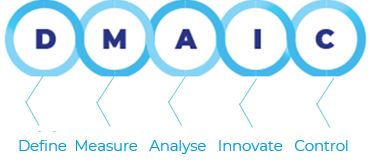
The 21 breakthrough projects to date are initiated by the field teams, supported in their approach by 13 Green Belt certified experts and supervised by 1 Black Belt.
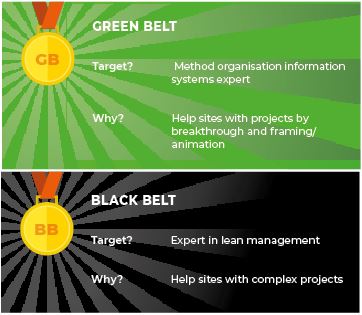
The implementation of daily practices based on lean management tools
Training and certification are accompanied by the application of new working methods such as:
- The cordoning of areas, allowing a safe working environment
- The team briefing, which allows a daily exchange between the manager and his/her team on collective and individual objectives as well as the treatment and prioritization of potential problems
- The on-site visit allows us to act on the risks of accidents, to communicate, to share the rules of operation and the areas of improvement.
- Training for the position is based on the formalization of standards and a teaching method shared by all managers and tutors.
"Viaposte is also thinking about modernising its lean management tools, such as the development of a digital site visit, deployed by mobile application, enabling managers to be more flexible and to generate a real-time support document containing observations to feed into the team brief.
Since the implementation of APOLLO, the results are visible. In 2020, €250,000 were saved on production costs. But the approach is a long-term one, requiring daily management and regular communication to give meaning and visibility and maintain commitment.
*APU: Autonomous Production Units allows to delegate to the operators the follow-up of the indicators of a work area, the analysis of the problems and the implementation of corrective measures.
**PPI: Physical Performance Indicators is the measurement of the proper use of resources. Each company defines its key PPIs according to its activity.





